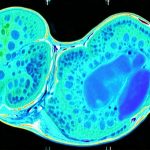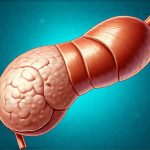Introduction
The gallbladder, often underestimated in conversations about digestive health, plays a crucial role in processing fats. This small organ, nestled just below the liver, stores bile – a fluid produced by the liver that aids in the digestion and absorption of dietary fats. While many focus on diet when considering gallbladder wellness, the significance of adequate hydration is frequently overlooked. A properly hydrated body supports optimal bile composition and flow, minimizing the risk of sludge formation, gallstone development, and associated discomfort or complications. Ignoring sufficient fluid intake can create a situation where bile becomes overly concentrated, increasing the likelihood of these issues arising.
Maintaining gallbladder health isn’t just about avoiding symptoms; it’s about proactively supporting overall digestive function and well-being. Think of hydration as a fundamental building block for a healthy system – one that allows your body to efficiently process nutrients and eliminate waste. It’s not simply how much you drink, but also what you drink that impacts this delicate balance. Understanding the interplay between water intake, bile production, and gallbladder function can empower individuals to make informed choices supporting their long-term digestive health. This article will delve into the specific ways hydration influences gallbladder function, offering practical insights for maintaining a healthy system.
The Mechanics of Bile and Hydration
Bile isn’t just a single substance; it’s a complex fluid containing water, bile salts, cholesterol, phospholipids (like lecithin), bilirubin, and electrolytes. Water constitutes approximately 85-90% of bile. This high water content is essential for maintaining the fluidity of bile, allowing it to move efficiently through the biliary system – the network of ducts that transport bile from the liver and gallbladder to the small intestine. When hydration levels are insufficient, the body attempts to conserve water wherever possible. One consequence of this conservation effort can be a reduction in the water content of bile, leading to concentrated bile.
Concentrated bile is more likely to form sludge – a precursor to gallstones – as the increased concentration of cholesterol and other components makes it easier for them to precipitate out of solution. Furthermore, thicker bile doesn’t flow as easily through the biliary ducts, potentially causing blockages or inflammation. Conversely, adequate hydration helps maintain optimal bile fluidity, facilitating its effective release into the small intestine when needed for fat digestion. This smooth flow minimizes stagnation and reduces the risk of complications arising from concentrated bile. Hydration directly influences the physical properties of bile, impacting its ability to function correctly.
Think of it like a river: a fast-flowing river (well-hydrated bile) is less likely to become stagnant or clogged than a slow-moving, sluggish one (dehydrated bile). The body’s natural processes are designed for fluidity and efficient movement; when we disrupt that with inadequate hydration, the system can struggle. Choosing beverages that contribute to overall hydration – primarily water – is therefore critical for supporting gallbladder health alongside dietary choices.
Gallstones and Bile Composition: A Hydration Link
Gallstones commonly form when there’s an imbalance in bile composition. Cholesterol gallstones, the most prevalent type, develop when there’s too much cholesterol relative to bile salts. As previously mentioned, dehydration contributes to this imbalance by concentrating bile, increasing the likelihood of cholesterol precipitating out. However, it’s not just about cholesterol; hydration also impacts bile salt concentration and solubility. Bile salts are crucial for emulsifying fats, breaking them down into smaller droplets so they can be absorbed.
- Adequate hydration supports optimal production and secretion of bile salts.
- A sufficient water volume allows these salts to remain dissolved, preventing crystallization.
- Dehydration reduces the solvent capacity of bile, encouraging salt precipitation alongside cholesterol.
Beyond composition, dehydration impacts gallbladder motility – its ability to contract and empty effectively. Stagnant bile is more prone to forming stones. Studies have shown a correlation between lower fluid intake and increased risk of gallstone formation in certain populations. While not a direct causal relationship (many factors contribute to gallstone development), sufficient hydration is recognized as an important preventative measure. Maintaining proper hydration can help maintain the delicate balance needed for healthy bile composition.
Recognizing Dehydration: Subtle Signs & Symptoms
Often, we don’t realize we’re mildly dehydrated until symptoms become noticeable. However, even mild dehydration can impact gallbladder function and overall health. It’s important to be aware of early warning signs so you can proactively increase your fluid intake. These signs aren’t always dramatic; they can creep up on you gradually.
- Thirst is the most obvious signal, but it’s often a late indicator – meaning you’re already somewhat dehydrated when you feel thirsty.
- Dark yellow urine indicates concentrated waste products and insufficient fluid intake. Ideally, your urine should be pale straw colored.
- Fatigue or lethargy can be an early sign of dehydration, as even mild fluid loss impacts energy levels.
- Headaches are common, often stemming from reduced blood volume.
- Dry mouth and skin are telltale signs that the body is conserving water.
Beyond these common symptoms, individuals with gallbladder issues might experience increased discomfort or bloating when dehydrated. The sluggish flow of concentrated bile can exacerbate existing sensitivities. It’s essential to listen to your body and respond to even subtle cues indicating dehydration. Proactive hydration is preferable to waiting until you feel thirsty.
Hydration Strategies for Gallbladder Support
Beyond simply drinking more water, there are strategies to optimize hydration specifically for gallbladder health. Focusing on consistent intake throughout the day is key. Don’t wait until you’re thirsty to drink; sip water regularly. A general guideline is to aim for at least eight 8-ounce glasses of water per day, but individual needs vary based on activity level, climate, and overall health.
- Start your day with a glass of water. This helps rehydrate the body after sleep.
- Carry a reusable water bottle as a visual reminder to drink throughout the day.
- Choose hydrating foods: Fruits and vegetables like watermelon, cucumbers, and spinach have high water content.
- Limit caffeine and alcohol: These substances can have diuretic effects, leading to fluid loss.
Additionally, consider incorporating beverages that support liver function, which indirectly benefits gallbladder health. Herbal teas like dandelion root or milk thistle (consult with a healthcare professional before using herbal remedies) may offer supportive properties. However, water remains the cornerstone of hydration. Prioritize plain water as your primary source of fluids. Remember, adequate hydration isn’t just about preventing gallstones; it’s about supporting optimal digestive function and overall well-being.


















